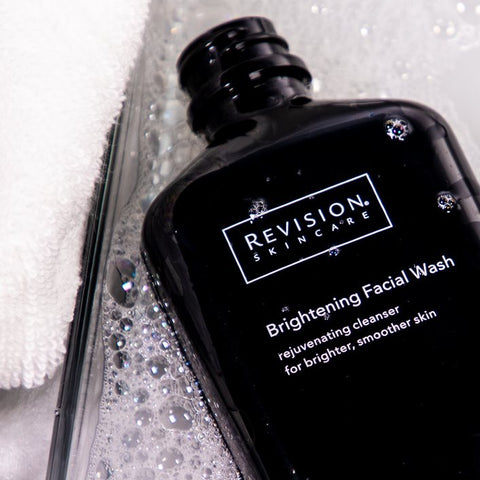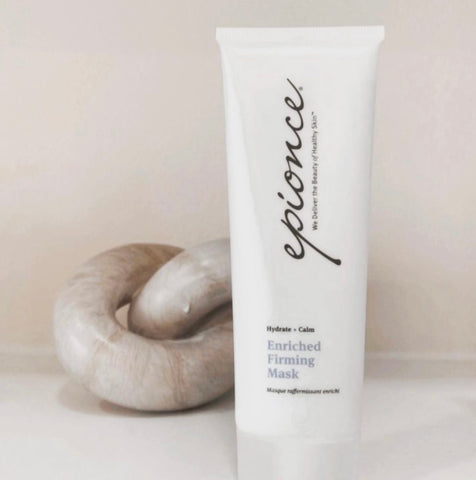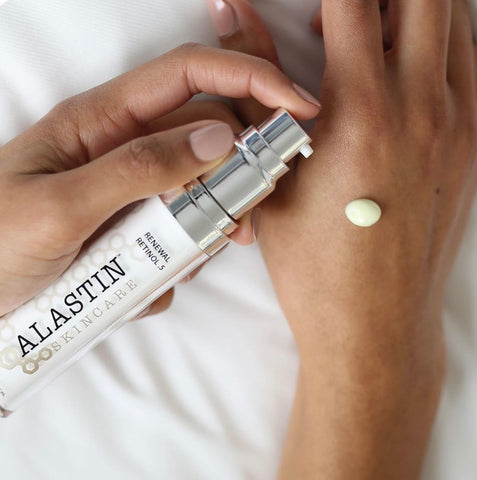How Stress Affects Your Skin: Ways to Regulate Your Stress Levels and Skin
Taking care of your body and skin is just as important as taking care of your mind. When you are in a period of stress, it can have a profound impact on the body, including the skin. When you experience stress, whether it’s due to psychological factors, lifestyle changes, or environmental stressors, your body responds by releasing hormones, such as cortisol and adrenaline. These hormones can trigger various physiological responses that can affect your skin in several ways.
- Oil & Acne: Stress can stimulate the production of sebum, the skin’s natural oil. Excess sebum can clog pores and contribute to acne breakouts, blackheads, and other blemishes. This is particularly evident in individuals with oily or combination skin type.
A few of our oily skin favorites include the Epionce Skincare Lytic Gel Cleanser, the Epionce Skincare Renewal Lite Facial Lotion, and the Revision Skincare Brightening Facial Wash.

Acne-prone skin can improve with the right products for your skin type, such as the PCA Skin Clearskin moisturizer , the Epionce Skincare Purifying Spot Gel, and the PCA Skin Blemish Control Bar cleanser.
- Sensitivity: Hormone levels change as stress levels rise, causing the skin to become more reactive and sensitive to external factors such as UV radiation, pollution, and harsh skin care products. Individuals with a sensitive skin type may experience heightened redness, itching, and irritation during periods of stress. Along with extra sensitivity, stress can also exacerbate certain skin conditions, including eczema, psoriasis, rosacea, and dermatitis. Flare-ups of these conditions may occur or worsen during periods of heightened stress, due to immune system dysregulation and increased inflammation.
Products that will help to protect and soothe the skin barrier of sensitive skin types include the Revision Skincare Soothing Facial Rinse, the Alastin Skincare Gentle Cleanser, and the Epionce Skincare Enriched Firming Mask.

- Delayed Healing: Chronic stress can impair the skin’s ability to repair and regenerate itself. High cortisol levels will interfere with the production of collagen, the protein responsible for maintaining skin structure and elasticity, leading to delayed wound healing and an increased risk of scarring.
- Premature Aging: Prolonged stress can accelerate the aging process by promoting the breakdown of collagen and elastin fibers in the skin. This can lead to the formation of fine lines, wrinkles, and sagging skin, giving the appearance of premature aging.
You can counteract some of the premature signs of aging with high-quality, medical-grade skincare, like the NeoCutis Skincare Lumiere Firm Riche tightening eye cream, the Alastin Skincare Renewal Retinol, and the Colorescience Sunforgettable Total Protection Face Shield.

- Hair Loss: Along with all of the possible skin issues caused by stress, the scalp and hair follicles can also be affected. Stress can lead to conditions such as telogen effluvium, which is a type of temporary hair loss. The change in hormones can disrupt the hair growth cycle, causing more hairs than usual to enter the resting phase and eventually fall out, causing minimal hair loss.
The connection between stress and skin health highlights the importance of holistic wellness practices in maintaining a healthy complexion. During times of stress, it's important to continue to take care of your skin to help prevent further irritations. Additionally, incorporating stress-relieving skincare products and practices into your routine can provide additional support for maintaining healthy, resilient skin. There are several ways to regulate your skin and manage breakouts effectively during stressful periods. Here are some tips:
- Stick to Your Skincare Routine: Like you have heard before, consistency is key when it comes to skincare, especially during times of stress. Stick to your regular skincare routine, including cleansing, moisturizing, and applying any targeted treatments for acne or other breakouts. Avoid making drastic changes to your routine, as this can disrupt the skin's balance and worsen breakouts.
- Stress Management: Incorporate stress-reduction techniques into your daily routine to help manage stress levels and minimize its impact on your skin. This may include activities such as meditation, deep breathing exercises, yoga, or mindfulness practices. Finding healthy outlets for stress can help regulate hormone levels and reduce the likelihood of breakouts.
- Get Adequate Sleep: You may not think about how important sleep is for your physical health. Prioritize getting enough sleep each night, as insufficient sleep can exacerbate stress and lead to increased inflammation in the body, including the skin. Aim for 7-9 hours of quality sleep per night to allow your skin to repair and regenerate itself effectively.
- Stay Hydrated & Eat Healthy: Drinking water and eating a balanced diet can tremendously contribute to skin health. Drinking plenty of water throughout the day keeps your skin hydrated and flushes out toxins. Proper hydration is essential for maintaining healthy skin function and preventing breakouts. You should also focus on eating a balanced diet rich in fruits, vegetables, lean proteins, and whole grains to nourish your skin from the inside out. Limit your intake of processed foods, sugary snacks, and greasy foods, which can contribute to inflammation and exacerbate breakouts. Avoid excessive consumption of caffeine and alcohol, as these can dehydrate the skin and worsen inflammation.
- Exercise Regularly: Incorporate regular exercise into your routine to help reduce stress levels and promote overall well-being. Physical activity can improve circulation, reduce inflammation, and boost mood, all of which can have positive effects on the skin. Aim for at least 30 minutes of moderate exercise most days of the week.
- Practice Good Hygiene: Maintain good hygiene habits to keep your skin clean and free from excess oil, sweat, and bacteria. Wash your face twice daily with a gentle cleanser, and avoid touching your face with unwashed hands to prevent the spread of bacteria and the development of breakouts.
By incorporating these strategies into your daily routine, you can help regulate your skin and manage breakouts more effectively, even during stressful times. Remember to be patient and consistent with your skin care efforts, as it may take time to see improvements, but with dedication, you can achieve happier and healthier skin over time.

